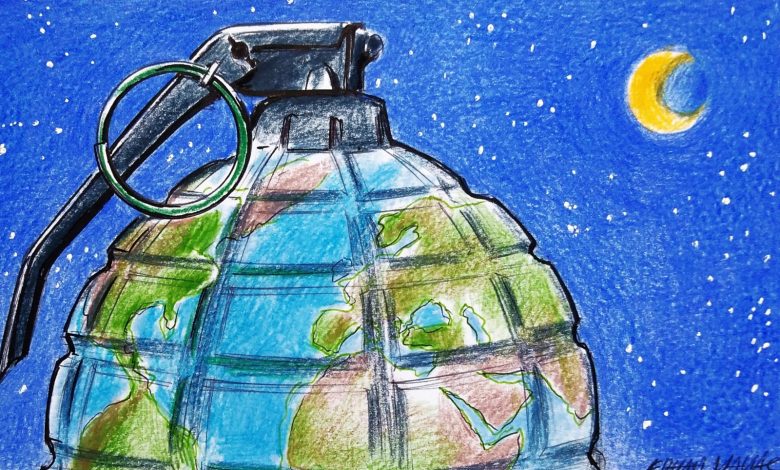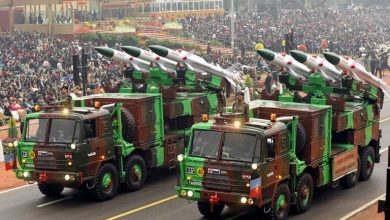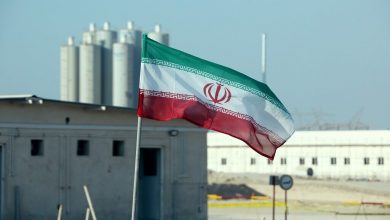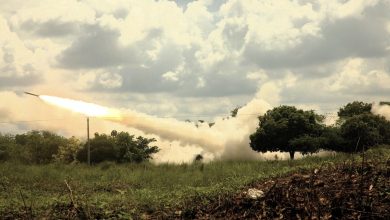Analysis: World at stake; dynamics on second anniversary of Russia-Ukraine war

Regrettably, the second anniversary of the Russian-Ukrainian war and the continued massacres in Gaza by Israel imply the potential for further conflicts worldwide.
The world was not in good shape on the second anniversary of the Russian-Ukrainian war. A quick look at the most recent developments alone would suffice to appreciate that we are entering a period of fragmentation and high risks.
– U.N. Secretary-General Antonio Guterres told the General Assembly that the world was entering an “age of chaos.”
– Germany’s chief of defense, Gen. Carsten Breuer, announced that the country had to prepare for war within five years due to the Russian threat. The German public is currently debating nuclear weapons.
– The U.S. House of Representatives continues to block Ukraine’s $60 billion military aid package.
– Donald Trump, who is expected to run and possibly win in November 2024, stated at a campaign event in North Carolina that he would encourage Russia to do whatever it wants to NATO allies spending less than 2% of their gross domestic product (GDP) on defense.
– Speaking at a fundraiser in San Francisco, U.S. President Joe Biden made inappropriate remarks on Russian President Vladimir Putin: “This is the last existential threat. It is climate. We have a crazy SOB like that guy Putin and others and we always have to worry about nuclear conflict.”
– Dmitry Medvedev, the deputy chairperson of Russia’s Security Council, responded to Biden by calling him “senile” and arguing that the existential threat to the world came from “useless old geezers like Biden himself.”
– Meanwhile, Putin took a co-pilot’s seat in a modernized and nuclear-capable Tu-160M strategic bomber during its test flight in Kazan.
Shifting dynamics after first year of Russia-Ukraine war
Obviously, the risk of nuclear conflict – which was a major issue during the first year of the Russian-Ukrainian war – has gotten lower despite such strong statements and gestures.
The United States and the European Union launched a “war of attrition” against Russia to isolate it – to no avail. The Russian forces have been advancing this winter, suggesting that the war could further escalate in the summer.
Receiving military support from China, North Korea and Iran, Russia has strengthened its military industry. It also remains more likely than Ukraine to find new mercenaries and recruits.
In contrast, economic sanctions failed to undermine Russia’s financial might – which mainly stems from oil and natural gas revenues.
It is no secret that the Russian threat encourages Europe to arm itself. At the same time, the International Criminal Court (ICC) issued a warrant for Putin’s arrest.
Yet regional powers in Asia, Africa and South America continue to do business, speak and cooperate with Russia.
Still, the war has not been going as well as the Russians hoped. Kyiv’s surprisingly strong resistance gave rise to potent anti-Russian Ukrainian nationalism. The occupation also repaired the Western alliance, resulting in Finland and Sweden’s admission into NATO and forcing Europe to adopt a new defense and security policy.
To be clear, Putin insisting that he does not plan to attack any European country except Ukraine will not change Europe’s perception of Russia as its enemy.
‘Lose-lose’ equation
Sadly enough, the war’s second anniversary and Israel’s ongoing massacres in Gaza suggest that the world could witness additional conflicts.
As the Munich Security Conference’s 2024 report notes, the international system has come to operate on a “lose-lose” basis. Instead of solidarity and cooperation, countries choose to compare their own losses with the losses of their adversaries. Accordingly, great power competition, the Global South’s quest for autonomy and tensions between the West and Russia (and the U.S. and China) gain momentum instead of slowing down.
Since Oct. 7, Israel’s massacres in Gaza and the endorsement of those actions by the West, starting with the U.S., took a toll on humanity’s faith in the U.N. system and values like human rights.
The Western countries accuse China, Russia and the rising powers of not paying enough attention to global problems, including climate change. They believe that the solution is to stand in solidarity with each other and to try and establish a rules-based order.
In truth, the world needs more than that to break out of the “lose-lose” situation. What stands in the way of optimism is people’s determination to keep their eyes shut. One cannot help but contemplate where the next conflict will begin – on top of Ukraine and Gaza – as one keeps fighting for “a fairer world.”
Source: Daily Sabah / Burhanettin Duran





